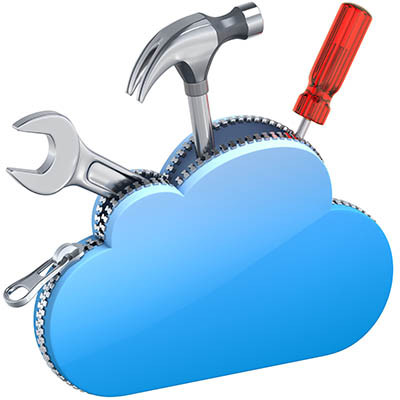Direct Technology Group Blog
The cloud can be a tricky beast to tame for your business, and it is mostly because of all the options you have at your fingertips to help your organization be as successful as possible with it. Let’s discuss some of the questions you need to ask to ensure you get the best value out of your cloud-based solutions.
The cloud provides businesses with all kinds of ways to be more productive throughout the workday, and while it’s great in most cases for companies that want to be more intentional with their infrastructures and budgets, there are certain cloud solutions that will be effective no matter what industry or professional endeavors you pursue.
Exploring how to fuel your business’ data needs typically comes down to whether or not you have the outstanding capital to purchase and manage your own IT infrastructure or if you are looking to utilize utility computing in the cloud to facilitate all of your business’ IT needs. This week, we thought we’d briefly discuss the pros and cons of cloud computing for your business and how much money, if any, moving to the cloud can save you.
If you have to rely on remote workers as a small business, you might fear what they represent to your operations: a lack of control, security challenges, and of course, productivity issues. However, in today’s remote workplace, it is important to acknowledge that remote workers played a critical role in saving countless organizations throughout the course of the pandemic.
The cloud has provided organizations with countless ways to innovate and improve operations, but for those who are just now jumping on this great opportunity, you might have some questions about how to get the most out of the cloud or how to even get started. Let’s discuss some of the major benefits of cloud computing, as well as why it’s critical to consider it in the years to come.
Most businesses today use cloud computing in one way or another. As people have been working from home, the value of cloud-based platforms has been noticed by new organizations of all types. With some businesses having seen significant cost reduction with their workforce dispersed, investing in cloud computing is being suggested by industry professionals to enhance access for remote workers. Today, we’ll take a look at the cloud migration process and how moving some platforms to the cloud is the logical next step for some businesses.
Cloud computing has seen momentous growth over the past decade, but despite this, many business decision makers have been resistant to the change. However, with stay-at-home orders now keeping employees at home for months at a time, the cloud is swiftly becoming the best option to fulfill many of their needs. Let’s review how businesses can use the cloud to present solutions to solve potential problems.
Regardless of what you do, it’s a good bet that your business creates a lot of data. Some of which is completely essential to its sustainability. In order to protect it against data loss and disaster, you will need data backup. Today’s best options leverage cloud computing to ensure redundancy and availability. Today, we’ll take a look at data backup and how choosing one that incorporates cloud services can actually save your business.
Ever since it started to be looked on as a reliable computing option for businesses, cloud computing has been exceedingly popular. Businesses and individuals use cloud computing platforms for their infrastructure needs, their application deployment, their file sharing and storage, and for redundancy to protect their business, but have you ever wondered how the cloud platforms themselves are kept up to date? Today, we will look into it.
Being an authority in small business IT, we have to suggest a lot of different solutions to our clients. One thing we are sure to do is to suggest implementing cloud platforms, whether public or private, as a way to extend the reach of your business. The problem becomes that once some people are bit by the cloud bug, they go all out. Today, we’ll take a look at cloud computing’s cost, and whether or not access to cloud applications can actually be hurting your business.
Cloud computing has helped many businesses over the past few years. The many benefits it provides have enabled a variety of businesses in many industries to improve their functionality. The retail sector is a prime example of one such industry. Here are a few benefits that the cloud has imparted to those in retail--benefits that your business could enjoy as well.
There’s no denying the importance of data management for businesses, but companies that utilize cloud-based data storage and infrastructure access have to be extra aware. How can your business ensure that your data storage methods are working for you, and not against you? For this week’s tip, we’ll discuss some of the ways that businesses can best use their cloud-based data storage without compromising efficiency.
The cloud has taken over the business environment, and every business that takes advantage of it needs to consider several factors to ensure that they purchase the right one for their specific needs. Here are three common talking points for businesses to consider when investing in a cloud-based solution.



















